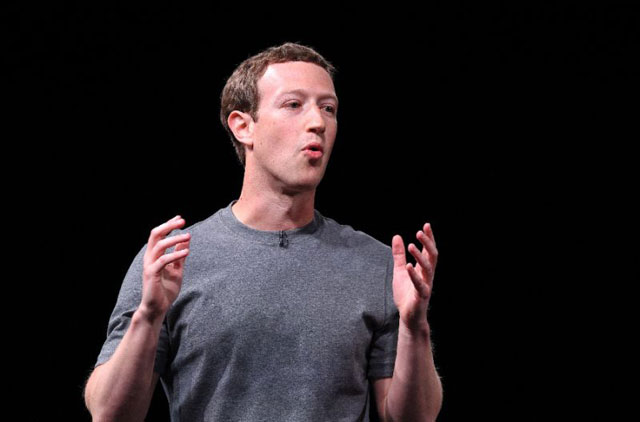
The announcement of Sherry Rehman as the ambassador-designate less than 24 hours after the resignation took many by surprise. For socially progressive liberals, Sherry Rehman’s impeccable credentials of courage in advocating women’s and minority rights had to be acknowledged in this selection. Yet, there were others who could not concede being mistaken in their predictions and immediately began to suggest that the new ambassador-designate is somehow also hand-picked by the military. Particularly strident in this line of thinking have been Canadian-Pakistani activist and talk-show host Tarek Fatah and Norwegian-Pakistani academic Farhat Taj. The main anchor for their critique is a report on Afghanistan-Pakistan that was published by the Jinnah Institute, a think tank that Sherry Rehman led until her appointment.
The report in question is titled Pakistan, the United States and the End Game in Afghanistan: Perceptions of Pakistan’s Foreign Policy Elite. But for those who suggest that the report was somehow surreptitiously supported by the military, please note that the co-sponsor of the report is the United States Institute of Peace, a Congressionally-mandated independent organisation. The report is meant to be an observational document synthesising perspectives rather than an empirical study. Thus to critique it on academic grounds is inappropriate and the findings are fairly self-evident in terms of how the public views American involvement in the region. Why should the findings of this report be somehow indicative of Ms Rehman being in cahoots with the military? What is troubling is that even leading reporting outlets such as The New York Times, in their news story reporting Ms Rehman’s appointment, hinted at this connection.
Independent American think tanks such as the New America Foundation have done studies of views regarding issues such as drone strikes in Fata and the findings indicate overwhelming opposition to such interventions. Surely, the New America Foundation is not under the influence of the Pakistani military! Furthermore, even if Ms Rehman’s views at times may come across as ‘pro-military’, why must that be suggestive of some anti-democratic trajectory for her selection and her forthcoming leadership? It is high time that liberal analysts not use their disagreements with particular views as a means of conspiratorial thinking — for which they often accuse their conservative counterparts.
The demonisation of the military is not likely to serve the cause of democracy. No doubt the military has played a disproportionately powerful role in Pakistan’s history and has often been errant in their interventions. But, as with other countries living in stressed security locales, this is not unusual and there are paths to democracy by more cautious conciliatory approaches with military ranks. Note that countries such as Brazil, South Korea or Turkey followed a similar path for many years with strong military governments, but transitioned to democracy after a friendly alliance was formed between civilian and security forces.
Ways by which pluralistic nations negotiate matters with multiple constituencies should not be dismissed with cynicism but rather allowed to proceed as a means of democratisation. That is the path which Sherry Rehman will likely follow and for which she deserves our support in improving ties between Pakistan and the United States.
Published in The Express Tribune, November 28th, 2011.
COMMENTS (34)
Comments are moderated and generally will be posted if they are on-topic and not abusive.
For more information, please see our Comments FAQ


















Saleem Ali---can you show me the article you wrote which was critical of Imran. I only remember the one in which there was more praise and less criticism. Sure, the dynastic feudal structures of the democratic set up in Pakistan are to be done away with. No self-respecting democrat would not agree with that, the problem is that you seem to completely overlook the fact that the military is a severe impediment to that, by its clandestine or overt (as circumstances allow) support for and meddling in the political affairs of the country and political parties. The military serves to maintain this status quo in spite of making noises to the contrary, either directly or through its puppets (I am not saying you are one of them).
The example of polarization you give, i.e., Fox News is not so relevant in this context. Moreover, Tarek Fatah's views have little or no relevance to Pakistan also---he is quite out of touch. Farhat Taj's views, on the other hand, though at times may be a bit extreme, are nevertheless often valid and hit at the core of whether our establishment really wishes to root out terrorism or are other matters, like strategic depth, more important to it.
Your view that this can be handled by coercing the military piecemeal sounds rather naive. It is not going to give up all this power willingly.
@Saleem H Ali: What ever you say your article has a tilt in favor of Army. In any democratic country there is only one rule and that is right from all prospective and that rule is that Army is subservient to the civil authority. Its very role is to carry out the will of the elected government. Army can not and should not be a partner in governance. Period.
Every country has its Army, in Pakistan the Army has it's country.
@Mariam.b: The establishment whether civil or military is the cause of most of the problems of Pakistan. Politicians come and go, but the establishment remains strong. As far as the middle class is concerned, it is the lower middle classes that support fundamentalism and terrorist groups and have always subverted democratic forces.
OK -- if my views are "out of touch with reality" what would you advocate that is more realistic? Is a dynastically determined presidential leadership (not directly elected I might add) the apex of democracy? Would that not be autocratic either? All I have asked for is a process of engagement -- no one is saying the military should call the shots -- nor Imran Khan for that matter (I was actually very critical of Imran in my earlier article). For a maturing democracy one needs such a process -- there are no short-cuts.
Polarized views appeal to our brains -- that is why Foxnews is so successful to in US @Umer:
However, polarization is never a recipe for solutions to intractable problems -- whether I live in Vermont in Lahore is inconsequential. I have enough family in Pakistan to care deeply about the country and am always eager and willing to offer ways to help in any way I can. Our goals are the same -- sustainable democracy in Pakistan where the military is indeed subservient to the government -- a government that is freed from feudal and entrenched dynastic interests. The only disagreement, perhaps, is how to achieve those goals.
@Umer: Another establishment supporter. We are sick of this pro-establishment stance.
As the Haqqani episode shows, it is important to write a few articles in support of the establishment if anyone wants to join or survive as an "inner-circle" member in Pakistan. Don't be suprised if "Professor" Ali joins the PTI government as an advisor or minister. This article seems to be a part of the establishing the qualification.
If you wanted to compromise on a major issue of national security call it a 'nuanced' argument. Voila! I l learned something new today.
I can understand where the Good Prof is coming from. He has to return to Islamabad very often unlike Tarek Fatah. Chup.
I am quite disappointed in this piece, having previously often liked what this writer has had to say. And even more disappointed by the comments he has posted. It is compromise and pragmatism that has led us to a state of affairs where the military has always decided on foreign policy. This should be unacceptable, no ifs or buts. The civilians governments have had many weaknesses but that does not justify the military's role in meddling in civilian affairs, and most importantly foreign policy. I think the primary reason for this piece is the writer's fondness for Imran Khan (which was another article he wrote a while back that I could not endorse) and hence appreciation for the military's meddling, without which Immy bhai would still be in the wilderness.
Methinks when the professor of environmental planning and Asian Studies from a university in Vermont, USA, tries to justify our generals actions by blaming the "stressed security locale" we live in, he seems to have quite lost the plot.
Perhaps one can allow for a person living in remote, blissful and peaceful Vermont (population 630,000) acquiring a very benign outlook towards the shenanigans taking in one's country of origin seven thousand miles away. However, for those of us living here, these views appear to be completely out of touch with reality.
@Tarek Fatah:
So, nothing has really changed from the 40 years ago when you took it upon yourself to challenge the establishment. Looking back, do you think that the personal sacrifices, including very serious deprivation of personal liberty for a prolonged period and taking on personal discomfort, all for that land that you have always believed in, were worth it?
@Salim H Ali
But, as with other countries living in stressed security locales, this is not unusual
Really? Try India with Pakistan (including East Pakistan) and China surrounding it from three sides. Spurious thesis, to say the least.
@Syed
an honest dictator is better then a corrupt democratic leader
Do you have even the faintest idea of the 'personal' wealth of any of the dictators of the past. For starters find out, How much is Gen Musharaff spending on PR firms in the USA. http://tribune.com.pk/story/269359/getting-attention-musharraf-hires-firm-to-represent-his-interests-in-us/
Saleem Ali, How can you justify the Military's 40 year agenda of strategic depth in Afghanistan using proxies? It has ruined Pakistan to the core and yet you plead for adjusting with military on strategic issues??? I don't get it. What about the girls in Afghanistan? When will they get to visit their version of ROM in their own country with their fathers? If the Taliban were to gain power in Kabul ever again, they will not stop there. Their friends in Pakistan will be reinvigorated to launch their own agenda that would lead to further Islamization of a country that is already crippled by fanaticism.
Really sad to read Tarek Fatah's comment. I always considered him to be a sensible man. I am quite certain that he understands the strength of Saleem Ali's argument and the weakness of his own position. But look at the way he is interpreting the article for public consumption.
@writer: Can you please write something on Environmental Planning in Pakistan? I think you will have a comparative advantage on that!
@Saleem H Ali: In any democratic country there is no "room for some compromise" between Civil Authority and its Army. The army is decidedly and finally under civil authority to carry out their orders and act to achieve aims laid down by the Government of the time. Compromise being propagated by the author is highly deceptive.
@Umer: There is a difference between criticism of establishment and demonization.Instead of being sick of establishment you should be sick of polarization which achieves nothing but further fractures in society and political paralysis. I am often critical of the military but that does not mean that there is no room for some compromise on matters of strategy and an acknowledgement of their appropriate roll when needed.
Have no love lost for Tarek Fatah and his views. But let me ask you this, dear writer, do the armies of Brazil, South Korea and Turkey support terrorist groups on the side?
@Tarek Fatah: As usual you are distorting a nuanced argument for your own demagoguery. I am not defending the indiscretions of the military any more than you are willing to look away from the culpability of many dynastic parties such as the PPP. Both have their faults. A negotiated political decision-making process is needed to strengthen democracy. We need to work with an imperfect system with pragmatism rather than misplaced idealism.
Let me say that I am surprised to see this article on ET taking into consideration the targeted segment of ET. I think most of our ultra-leftists have noble intentions but lack vision of a recipe of how to get out of the current civil-military imbalance. Mere rhetoric and tirades don't serve a purpose. Systems don't become bad over night because of one party's evil or others, everybody has contributed to the mess of Pakistan that it currently is (including me). The only way out is thinking of workable solutions and that can't happen without due cooperation between the establishment and civilian leadership.
The people of Pakistan stand with the the establishment because its honest, honorable , dedicated and full of middle class. I have seen only on ET how desi liberals of priviliged backgrounds try to defame or demonise establishment.
Establishment is the reason we exist as Pakistan
Pakistan Zindabad
No doubt the military has played a disproportionately powerful role in Pakistan’s history and has often been errant in their interventions. But, as with other countries living in stressed security locales, this is not unusual and there are paths to democracy by more cautious conciliatory approaches with military ranks.
The security stresses Pakistan faces are internal, due to the military's persistent support for jihadist and extremist groups in search of strategic depth. The economic and civil stresses are effects of the establishment's intervention in every aspect of governance and external as well as internal relations. "Living in a stressed security locale" is thus stretching the truth to portray perpetrators as victims.
Using this self-induced stress as justification for military intervention is just an excuse for self-perpetuating rule. You can peddle the dubious "doctrine of necessity" in new packaging, but the world ain't buying.
This is a shameless apology for the Pakistan Military and the ISI's 'Strategi Depth' agenda. Those who danced with joy at the sight of the 'Goree Paltan' and it's surrogates like Field Marshal Ayub, Gen Zia, Gen Musharraf are today tantalized by the sight of Generals Kayani and Pasha. Those who celebrate invaders like Bin Qasim and Ghaznavi as their heroes will never ever be able to shed their addiction to men marching in military uniforms. Punjab's elite ruined Pakistan both inside and even when they choose to live in the democratic West which they use to sustain themselves, but cannot stop hating the very land that embraces them.
Another establishment supporter. We are sick of this pro-establishment stance.
@Ex
The military was in charge when Pakistan entered SEATO CENTO, Afghan Jihad and War on Terror. US was against Bhutto, and didn’t lend a penny during civilian rule of the 90s. Army is the main beneficiary of Pak US relations. Where world are you living in?
Army is very honest compare to the democracy , an honest dictator is better then a corrupt democratic leader , why we have to support the corrupt democracy ???
Very well said Mr. Ali. I completely concur with your analysis of the manichean "black & white" worldview of most Pakistanis (irrespective of which end of the so-called left/right spectrum they're on).
Very thoughtful and balanced article. Had our civilian governments followed a rule of law, justice, corruption free governance I think military wouldn't have been able to do copes.
I agree with the writer, its amusing to see the "conspiracy theories" which these liberals concoct to demonize the military.
Incidents like memogate strengthen the hands of the military. Civil military imbalance can’t be changed by such underhand deals. You need to convince the masses of the virtues of civilians rule through better governance. The idea of portraying Haqqani as the victim is self-defeating. The liberal commentators are educated folks, do they seriously think people will forget the memo and focus on civil military imbalance. One may argue that military men were never made to resign for similar acts, but it doesn’t mean that Haqqani did the right thing